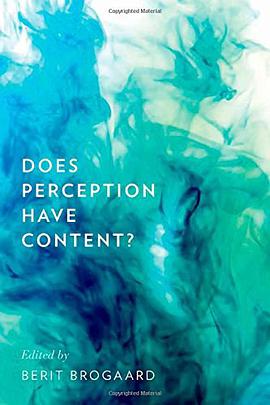Does Perception Have Content?
豆瓣
Philosophy of Mind Series
Berit Brogaard
简介
Within the contemporary philosophical debates over the nature of perception, the question of whether perception has content in the first place recently has become a focus of discussion. The most common view is that it does, but a number of philosophers have questioned this claim. The issue immediately raises a number of related questions. What does it mean to say that perception has content? Does perception have more than one kind of content? Does perceptual content derive from the content of beliefs or judgments? Should perceptual content be understood in terms of accuracy conditions? Is naive realism compatible with holding that perception has content? This volume brings together philosophers representing many different perspectives to address these and other central questions in the philosophy of perception.
contents
1. Introduction: Does Perception Have Content?
Berit Brogaard
Part I: Content Views
2. Bence Nanay: Empirical Problems with Anti-Representationalism
3. Susanna Siegel: Affordances and the Contents of Perception
4. Kathrin Glüer: Looks, Reasons and Experiences
Part II: Against Strong Content
5. Charles Travis: The Preserve of Thinkers
6. Diana Raffman: Disjunctivism and the Alleged Nontransitivity of Indiscriminability
Part III: Reconciliatory Views
7. Susanna Schellenberg: The Relational and Representational Character of Perceptual Experience
8. Heather Logue: Experiential Content and Naïve Realism: A Reconciliation
9. Benj Hellie: On which perceptual phenomena have content and why they have it
Part IV: Imagistic and Possible-Word Content
10. Mohan Matthen: Image Content
11. Michael Tye: What is the Content of a Hallucinatory Experience?
Part V: The Constituents of Perceptual Content and the Role of Perception
12. Bill Lycan: What Does Vision Represent?
13. Terry Horgan: Phenomenal Intentionality and Secondary Qualities: The Quixotic Case of Color
14. Tomasz Budek and Katalin Farkas: Which Causes of an Experience are also Objects of the Experience.